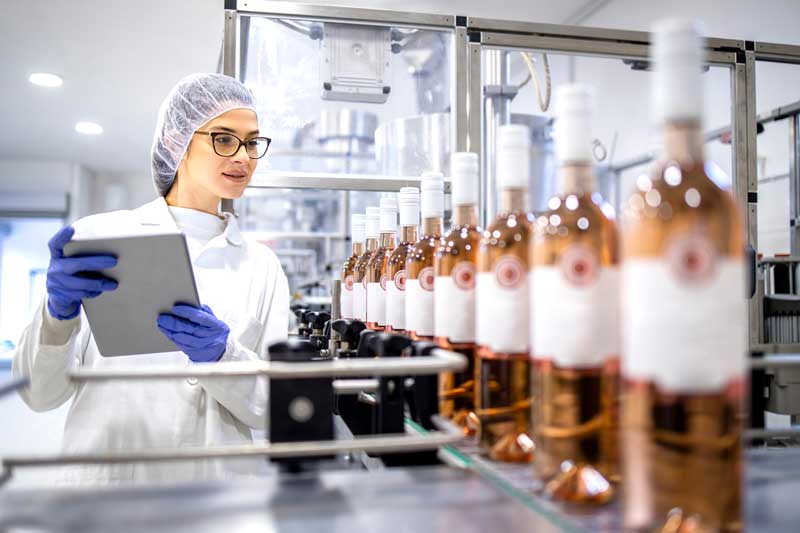The wine you’re drinking from a bottle is bad for the environment. That’s why environmentally conscious winemakers are trying to reduce their carbon footprint by phasing out glass bottles.
At the recent RISE Wine and Climate Symposium in Napa Valley, Jancis Robinson, the renowned international wine writer and critic, gave a speech calling out heavy glass wine bottles. She said heavy bottles make up 50% to 68% of wine’s carbon footprint.
“It really is time that we break the connection between heavy glass and wine quality, which we know is completely spurious,” Robinson said.
She offered more eco-conscious alternatives such as cans, bag-in-box, and new recyclable, flat, plastic wine bottles for most wines.
Canned wine reduces carbon footprint and helps sales
Wine-in-a-can doubles as eco-friendly and a way for the industry to compete with Ready-To-Drink (RTD) cocktails that fit a more on-the-go way of living. Millennials are happy to take their wine on the go, which pairs well with their lifestyle.
Between 2017 and 2021, volume sales for canned wine in Nielsen-tracked channels increased more than 3800%, according to Drizly, the alcohol delivery service.
Drizly admits that canned products account for only 1% of the wine category’s overall sales on its site, but expects a rapid increase in coming years.
“In 2016 and 2017, there were maybe 40 brands with some wine in cans. Now it’s about 230,” says Danny Brager, a beverage alcohol industry consultant and the former senior vice president for Nielsen’s beverage alcohol practice. “That shows consumers are buying.”
According to Straits Research, the global canned wines market is projected to reach $725.48 million by 2030 at a CAGR of 13%.
So not only would a change in materials be good for the environment, but it is good for business.

Brands lean in to values-based products
Mai Vino prides itself on reducing waste and keeping its wine fresh for 30 days after the first time you open its signature pouch.
The vegan brand says it makes wine in a pouch because it reduces the carbon footprint of making wine by 80%. The brand claims only 30% of glass bottles are actually recyclable, which increases the industry’s carbon footprint.
If you love wine but hate how it tastes two days after the bottle is opened, wine in a pouch also offers an air-tight seal, allowing the drinker to continue enjoying the product with the same freshness for 30 days.
On its website, founders Pam and Mai penned a note saying, “We work directly with winemakers and growers from around the world to produce responsibly grown and beautifully balanced single-origin wines. We then package these wines in air-tight pouches that keep wine fresher longer and reduces its carbon footprint by 80%.”

How labels and distributors can pivot to eco-friendly packaging
Change is hard. Currently, wine feels synonymous with bottles. But the data shows the next generation of drinkers’ values and lifestyles are changing. This leaves room for new packaging to meet the values of the market and reduce the industry’s carbon footprint.
Plus, there are upsides. For distributors, shipping and transporting wine in light cans and bags reduces shipping costs. Heavy bottles take up more space and use more fuel, which increases costs.
However, everyone must plan ahead when it comes to materials — specifically, aluminum cans are already facing a shortage because of the boom of the RTD market. Organizations might need to invest in technology that can help them figure out where they can get the proper materials, and the right analytics solution can show you how to make the right move for the environment align with the right move for your bottom line.
Learn more
Curious about what else is going on the industry? Check out our white paper—”5 Trends Impacting the Wine & Spirits Industry in 2023.”
- 87% of Utilities Have Experienced at Least One Data Breach in Last Three Years - February 5, 2024
- Can Drones Lower Your Next Utility Bill? - January 10, 2024
- Onshore Wind Farms Are The Next Big Thing In Renewable Energy - December 6, 2023




